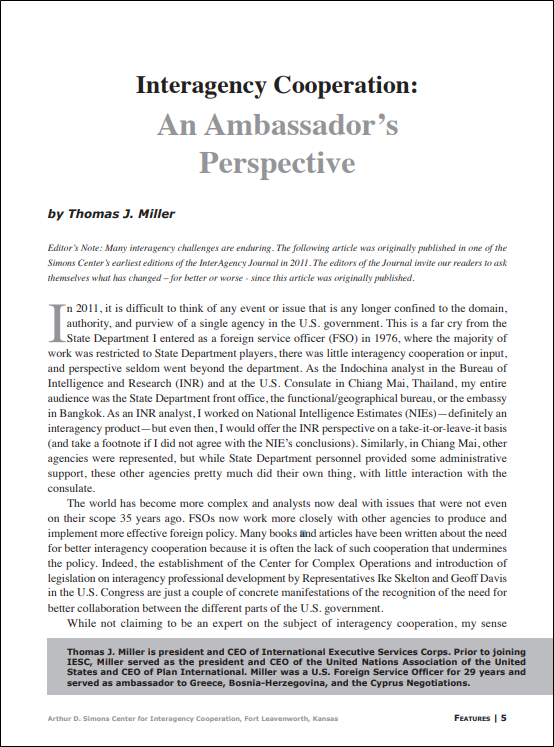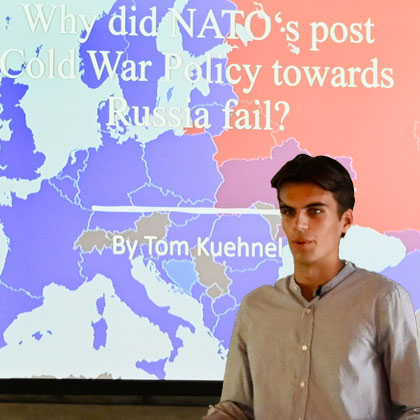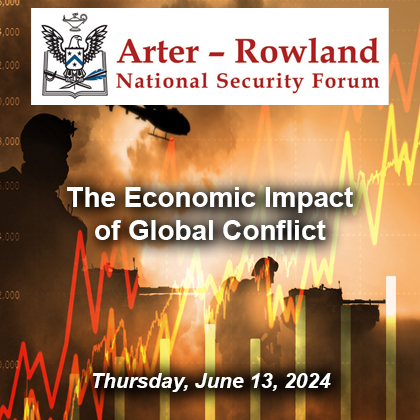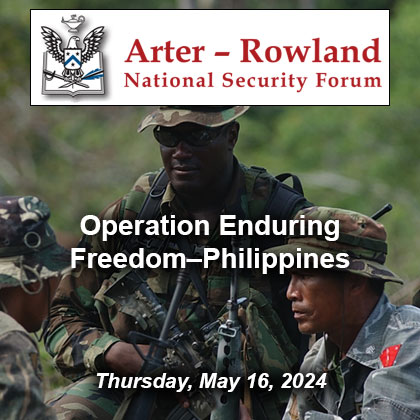Featured Article: An Ambassador’s Perspective
Featured article:
Interagency Cooperation: An Ambassador’s Perspective
by Thomas J. Miller
In 2011, it is difficult to think of any event or issue that is any longer confined to the domain, authority, and purview of a single agency in the U.S. government. This is a far cry from the State Department I entered as a foreign service officer (FSO) in 1976, where the majority of work was restricted to State Department players, there was little interagency cooperation or input, and perspective seldom went beyond the department. As the Indochina analyst in the Bureau of Intelligence and Research (INR) and at the U.S. Consulate in Chiang Mai, Thailand, my entire audience was the State Department front office, the functional/geographical bureau, or the embassy in Bangkok. As an INR analyst, I worked on National Intelligence Estimates (NIEs)—definitely an interagency product—but even then, I would offer the INR perspective on a take-it-or-leave-it basis (and take a footnote if I did not agree with the NIE’s conclusions). Similarly, in Chiang Mai, other agencies were represented, but while State Department personnel provided some administrative support, these other agencies pretty much did their own thing, with little interaction with the consulate.
The world has become more complex and analysts now deal with issues that were not even on their scope 35 years ago. FSOs now work more closely with other agencies to produce and implement more effective foreign policy. Many books and articles have been written about the need for better interagency cooperation because it is often the lack of such cooperation that undermines the policy…
Read the full article
Interagency Cooperation: An Ambassador’s Perspective PDF
Download the complete edition
IAJ 9-2 (2018) pdf
IAJ 9-2 (2018) ePub
Editor’s Note: Many interagency challenges are enduring. The following article was originally published in one of the
Simons Center’s earliest editions of the InterAgency Journal in 2011. The editors of the Journal invite our readers to ask themselves what has changed – for better or worse – since this article was originally published.
Thomas J. Miller is president and CEO of International Executive Services Corps. Prior to joining IESC, Miller served as the president and CEO of the United Nations Association of the United States and CEO of Plan International. Miller was a U.S. Foreign Service Officer for 29 years and served as ambassador to Greece, Bosnia-Herzegovina, and the Cyprus Negotiations.

Posted: June 20, 2018 by Simons Center
READ THE LATEST UPDATES FROM THE SIMONS CENTER
"*" indicates required fields


